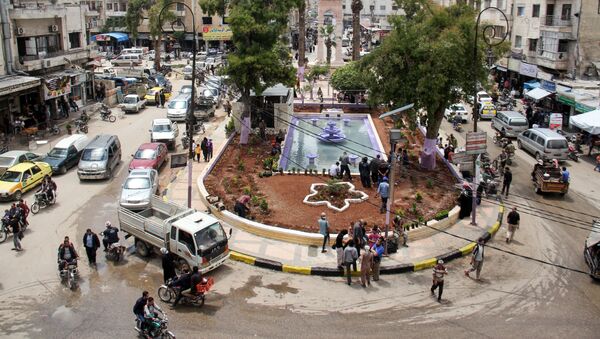The United Nations said in July it was concerned about running fights between Turkish and Syrian troops in the northwestern province, which appear to be in breach of a deal the Turkish and Russian leaders reached last fall.
"A new agreement is out of the question. There are a memorandum and agreements, reached in accordance with the Sochi memorandum in September. Therefore, implementing these agreements is of the utmost importance", Lavrentyev said when asked if a replacement deal was in the pipeline.
As to whether Russia had any "plan-B" to bring Turkey back into compliance, the envoy said that Moscow would continue working with Ankara to implement the September agreement.
"There are no plans. We maintain a very solid working contact with Turkish counterparts. I think that the issue lies with the pursuit to follow the agreements that were reached. The most important thing is to ensure the implementation of all clauses of this [September] memorandum", he said.
Russian President Vladimir Putin and his Turkish counterpart, Recep Tayyip Erdogan, agreed last year to set up a buffer zone between the pro-Turkish armed opposition and Syrian government forces.
The countries' defence ministers signed a memorandum pledging to stabilize the de-escalation zone.
In September 2018, the Russian and Turkish leaders agreed to set up a 9-12 mile demilitarized zone in Idlib along the contact line between the armed opposition and the government forces during their talks in the Russian resort city of Sochi. The withdrawal of heavy weaponry operated by the militants is also part of the agreement.


